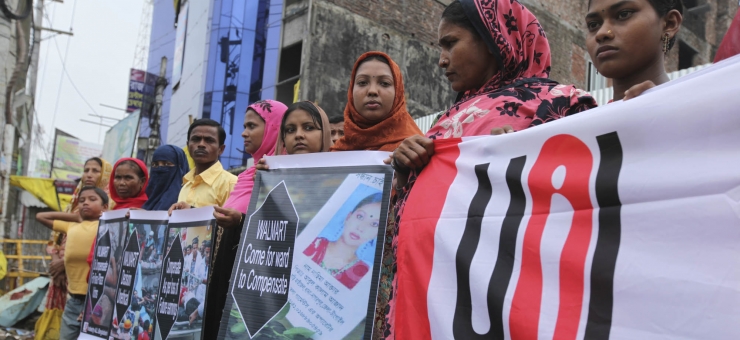Bangladesh Accord completes all initial factory inspections

The Accord is proud to announce that the initial inspections of Accord producing factories have been completed within the agreed timeline of end September 2014. Out of 1106 factories inspected, over 400 Corrective Action Plans (CAPs) have been finalised by the factories and company signatories, as well as being approved by the Accord Chief Safety Inspector (CSI).
More than 80,000 safety issues were identified that need to be resolved. Many of the corrective actions such as reducing weight loads and adhering to load management plans are already being implemented and monitored. The Accord inspections have also identified more substantial safety requirements such as installing fire doors and automated fire alarm systems, establishing fire protected exits from factory buildings, and strengthening of columns in the buildings.
“We have found safety hazards in all factories, which was to be expected. The safety findings have ranged from minor to significant. The Accord team is now working intensively with factory owners, brands, and labour colleagues to ensure the safety findings are corrected,” said Brad Loewen, the Accord’s Chief Safety Inspector. “The CAPs are paramount to this as they provide the remedial measures which must be taken to ensure an acceptably safe working environment.”
In 17 building inspections, the Accord inspections found that the structural integrity of the building fell below an acceptable level of safety. This led the Accord to submit its inspection results to the Government of Bangladesh’ Review Panel and recommend a temporary evacuation of the building. Around 110 inspections found that immediate actions were required to bring the factories above accepted safety levels for occupancy and production to continue. For other inspections occupancy and production has continued while the remediation measures are carried out.
The Accord is an ambitious, legally binding agreement between more than 180 global garment brands and retailers and global and Bangladeshi trade unions. The signatories made an unprecedented commitment to support the Bangladeshi garment sector with continued sourcing commitments and support for remediation where needed.
Since the signing of the agreement in May 2013 good and real progress has been made. “We welcome the continued commitment from global brands and retailers and local and global unions to supporting the remediation efforts in Ready-Made Garment (RMG) supply chains in Bangladesh,” said Alan Roberts, Executive Director International Operations. “The next phase of the Accord will focus on the implementation and monitoring of the corrective action plans and rolling out the training and worker participation program – including establishing credible labour-management occupational safety and health committees at the factory level.”
Press contacts:
Joris Oldenziel, Head of Public Affairs and Stakeholder Engagement
Office Amsterdam: +31 (0) 20 520 7431
Mobile: +31 614954430
joris.oldenziel@bangladeshaccord.com
About the ACCORD
The Accord on Fire and Building Safety in Bangladesh is an independent, legally binding agreement between companies and trade unions designed to work towards a safe and healthy Bangladeshi Ready-Made Garment Industry. Our purpose is to enable a working environment in which no worker needs to fear fires, building collapses, or other accidents that could be prevented with reasonable health and safety measures.
Key facts & figures
- 189 company signatory have signed the Accord
- 2 global unions and 8 Bangladeshi unions have signed the Accord
- More than 1500 Ready-Made Garment factories are covered under the agreement
- The Accord has inspected 1106 factories.
- More than 300 factories covered by the Accord are joint factories also covered by the Alliance for Bangladesh Worker Safety. The Accord is working with the Alliance to obtain their inspectors’ full inspection reports in the effort to develop Accord formatted reports and corrective action plans and to implement Accord remediation requirements with brands, suppliers, and labour partners.
- Approximately 100 additional factories were listed by company signatories towards the very end of the initial inspections program. These factories and any other newly listed factories subsequent to the completion of the initial inspections program will go through the same initial inspections by the Accord for fire, electric, and structure using the same standard.
Features of the agreement
- Legally binding agreement between brands and trade unions to enable a safe working environment in the Bangladeshi garment industry
- Independent inspections program supported by brands, in which workers and trade unions are involved
- Reporting system of public disclosure of all factories, inspection reports and corrective action plans
- A commitment by signatory brands to ensure sufficient funds are available for remediation and to maintain sourcing relationships
- Democratically elected health and safety committees in all factories to identify and act on health and safety risks
- Worker empowerment through an extensive training program and complaints mechanism and right to refuse unsafe work.

